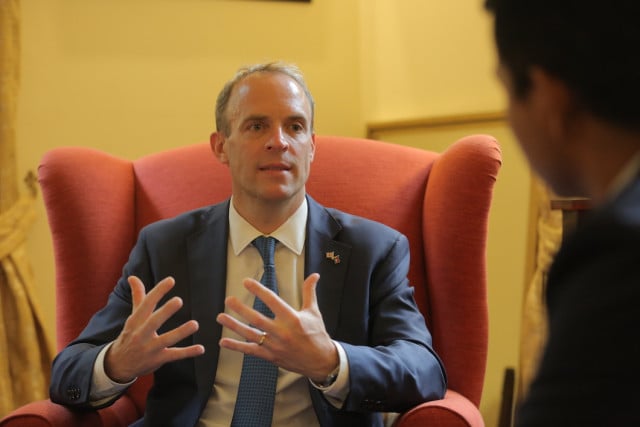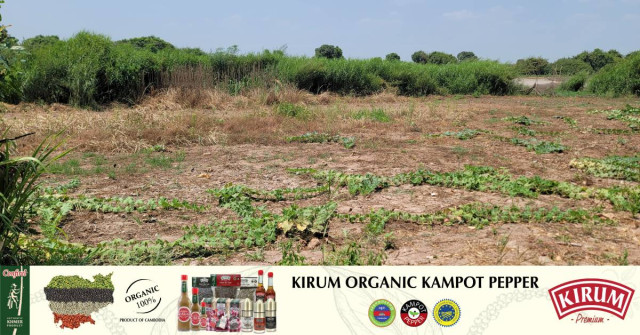Interview: China's BRI injects vigorous impetus into building community with shared future: Cambodian expert

- By Xinhua News Agency
- October 1, 2023 1:00 PM
PHNOM PENH -- Ten years on, China's Belt and Road Initiative (BRI) has injected vigorous impetus into building a community with shared future for mankind, significantly contributing to global and regional development and stability, a Cambodian expert said on Saturday.
Kin Phea, director general of the International Relations Institute of Cambodia, a think tank under the Royal Academy of Cambodia, said that in the past 10 years, through the BRI, China has actively supported major infrastructure development and connectivity projects in many regions, providing opportunities for countries to expand their trade networks and enhance economic potential.
He said the BRI's key infrastructure projects, such as the Sihanoukville Special Economic Zone in Cambodia, the China-Laos Railway in Laos, the Jakarta-Bandung High-Speed Railway in Indonesia, the China-Pakistan Economic Corridor in Pakistan, the China-Europe Railway Express, and the New International Land-Sea Trade Corridor, have significantly contributed to boosting economies and trade in regions and beyond.
"The BRI has become a new engine of global economic growth, injecting strong momentum into building a community with a shared future for mankind," Phea told Xinhua. "It is an active international cooperation platform for the cause of peace, security, sustainable development and common prosperity."
For Cambodia in particular, he said the BRI has greatly contributed to strengthening and broadening the cooperation between Cambodia and China, significantly benefited Cambodia's development agenda and brought opportunities for Cambodia to get rid of poverty, and promoted mutual benefit and win-win results.
Over the past decade, the BRI has played a crucial role in helping develop Cambodia's infrastructure and connectivity, such as roads, bridges, railways, airports, seaports, hydropower plants, special economic and industrial zones, expressways, and a new modern stadium, he said, adding that on top of these, China has brought investment to Cambodia in many sectors.
"These large-scale projects have greatly contributed to promoting connectivity, securing the sustainable source of electricity supply, enhancing economic competitiveness, diversifying sources of growth, and reducing logistics costs in Cambodia," he said.
"The BRI, together with the Regional Comprehensive Economic Partnership (RCEP) agreement and the Cambodia-China free trade agreement, will help Cambodia achieve its visions of becoming an upper middle-income country by 2030 and a high-income country by 2050," he added.
According to the expert, among BRI flagship projects in Cambodia, what has impressed him in particular are the Sihanoukville Special Economic Zone and the Phnom Penh-Sihanoukville Expressway.
Phea said the BRI construction follows an approach of extensive consultation, joint development and shared benefits, and advocates openness and inclusiveness that welcome the participation of countries and organizations around the world.
He added that partners can take part in the cooperation at any level and in whatever area best suiting their needs and priorities, domestic conditions, and readiness for international cooperation.
Speaking of the third Belt and Road Forum for International Cooperation in Beijing in October, Phea hopes that the forum will greatly contribute to promoting confidence in multilateralism and globalization, building an open and pluralistic world economy, and blazing a new trail in inclusive growth and sustainable development, in shaping a bright shared future.
"I believe that the third Belt and Road Forum for International Cooperation will give a fresh vitality to participating countries' development and world economic growth," he said.
BRI consists of the Silk Road Economic Belt and the 21st Century Maritime Silk Road. It was initiated by China in 2013 to build trade and infrastructure networks connecting Asia with Europe and Africa on and beyond the ancient Silk Road trade routes.















